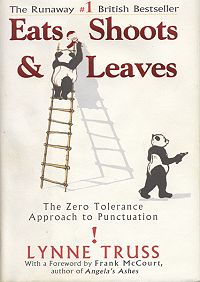 W
WThe Complete Plain Words, titled simply Plain Words in its 2014 revision, is a style guide written by Sir Ernest Gowers, published in 1954. It has never been out of print. It comprises expanded and revised versions of two pamphlets that he wrote at the request of HM Treasury, Plain Words (1948) and ABC of Plain Words (1951). The aim of the book is to help officials in their use of English as a tool of their trade. To keep the work relevant for readers in subsequent decades it has been revised by Sir Bruce Fraser in 1973, by Sidney Greenbaum and Janet Whitcut in 1986, and by the original author's great-granddaughter Rebecca Gowers in 2014.
 W
WA Dictionary of Modern English Usage (1926), by Henry Watson Fowler (1858–1933), is a style guide to British English usage, pronunciation, and writing. Covering topics such as plurals and literary technique, distinctions among like words, and the use of foreign terms, the dictionary became the standard for other style guides to writing in English. Hence, the 1926 first edition remains in print, along with the 1965 second edition, edited by Ernest Gowers, which was reprinted in 1983 and 1987. The 1996 third edition was re-titled as The New Fowler's Modern English Usage, and revised in 2004, was mostly rewritten by Robert W. Burchfield, as a usage dictionary that incorporated corpus linguistics data; and the 2015 fourth edition, revised and re-titled Fowler's Dictionary of Modern English Usage, was edited by Jeremy Butterfield, as a usage dictionary. Informally, users refer to the style guide and dictionary as Fowler's Modern English Usage, Fowler, and Fowler's.
 W
WEats, Shoots & Leaves: The Zero Tolerance Approach to Punctuation is a non-fiction book written by Lynne Truss, the former host of BBC Radio 4's Cutting a Dash programme. In the book, published in 2003, Truss bemoans the state of punctuation in the United Kingdom and the United States and describes how rules are being relaxed in today's society. Her goal is to remind readers of the importance of punctuation in the English language by mixing humour and instruction.
 W
WEnquire Within upon Everything is a how-to book, akin to a short encyclopedia for domestic life, first published in 1856 by Houlston and Sons of Paternoster Square in London. The editor was Robert Kemp Philp. It was then continuously reprinted in many new and updated editions as additional information and articles were added.
 W
WHart's Rules for Compositors and Readers at the University Press, Oxford—today published under the short title New Hart's Rules—is an authoritative reference book and style guide published in England by Oxford University Press (OUP). Hart's Rules originated as a compilation of best practices and standards by English printer and biographer Horace Hart over almost three decades during his employment at other printing establishments, but they were first printed as a single broadsheet page for in-house use by the OUP in 1893 while Hart's job was controller of the university press. They were originally intended as a concise style guide for the staff of the OUP, but they developed continuously over the years, were published in 1904, and soon gained wider use as a source for authoritative instructions on typesetting style, grammar, punctuation, and usage.
 W
WThe MHRA Style Guide: A Handbook for Authors, Editors, and Writers of Theses is an academic style guide published by the Modern Humanities Research Association and most widely used in the arts and humanities in the United Kingdom, where the MHRA is based. It is available for sale both in the UK and in the United States.
 W
WThe Sense of Style: The Thinking Person's Guide to Writing in the 21st Century is a 2014 English style guide written by cognitive scientist, linguist and popular science author Steven Pinker. Building upon earlier guides, such as Strunk & White's The Elements of Style and Fowler's A Dictionary of Modern English Usage, it applies science to the process of writing, and explains its prescriptions by citing studies in related fields – e.g., grammatical phenomena, mental dynamics, and memory load – as well as history and criticism, to "distinguish the rules that enhance clarity, grace, and emotional resonance from those that are based on myths and misunderstandings".